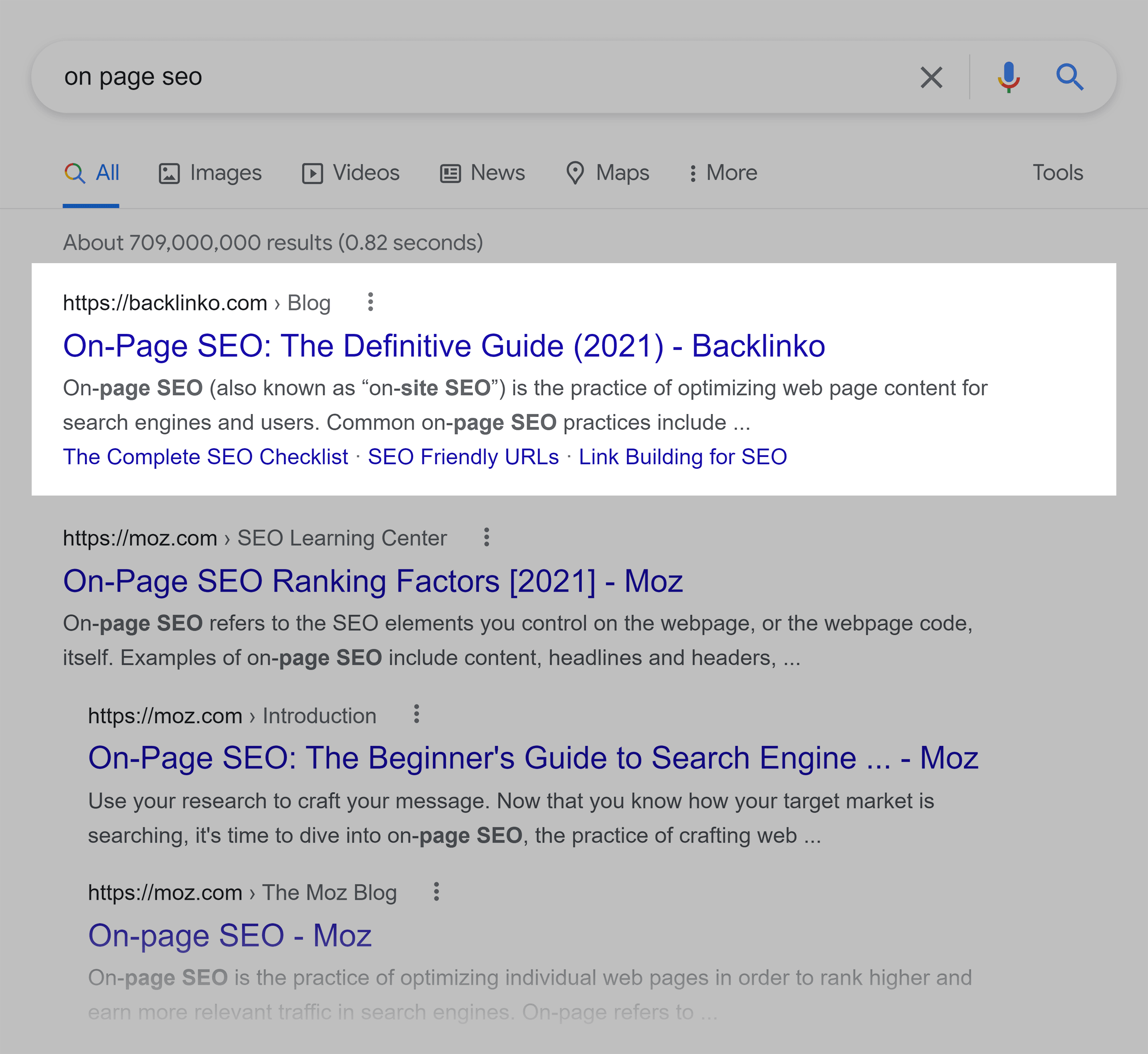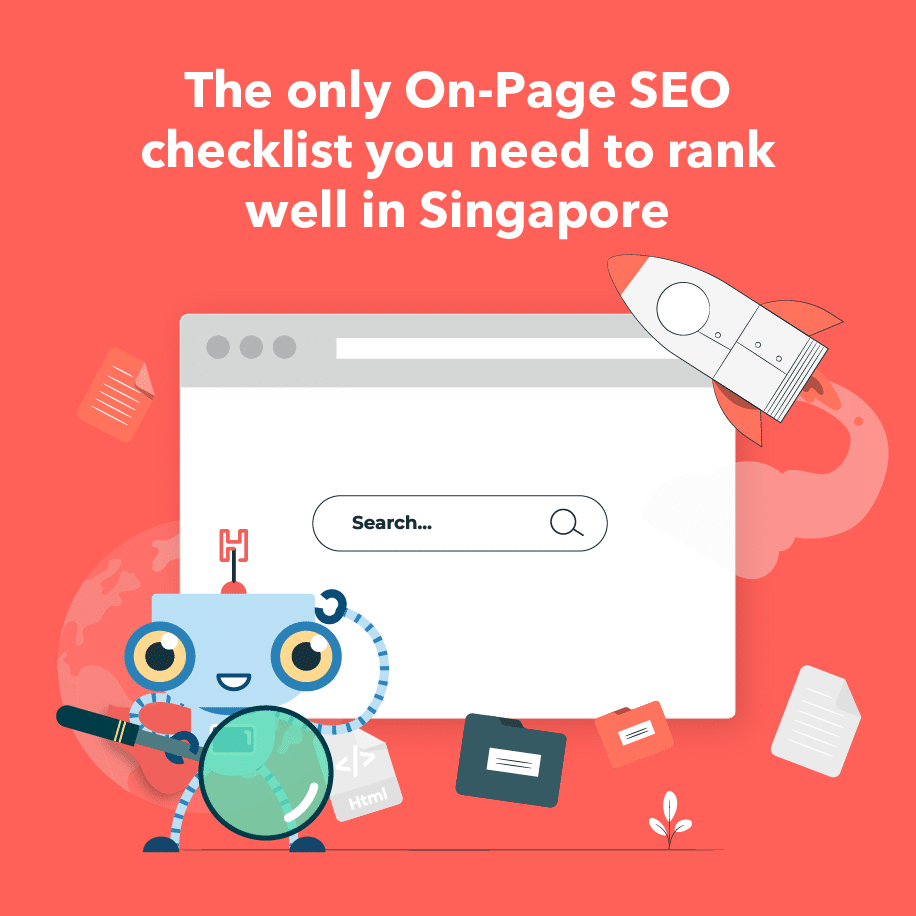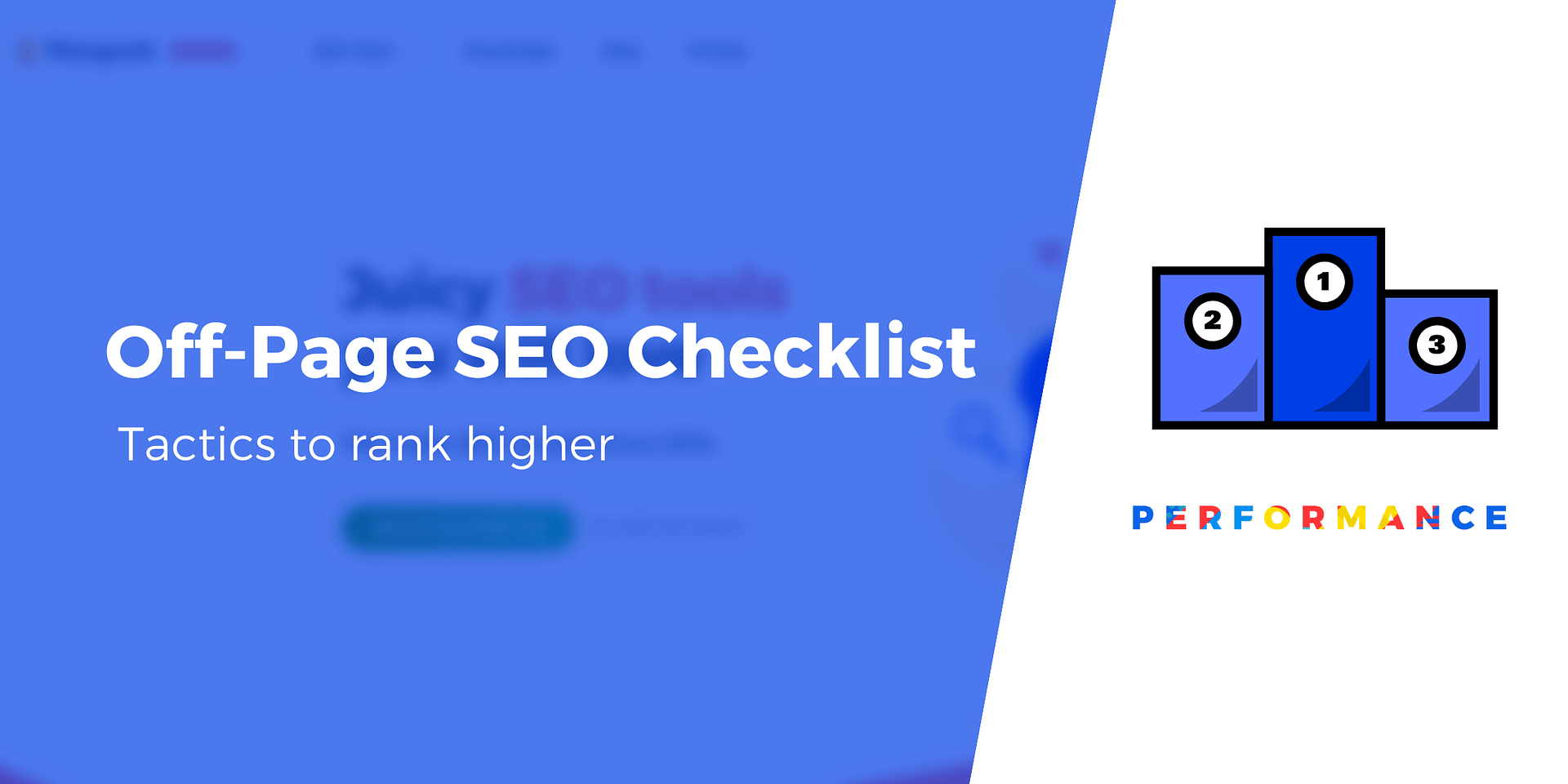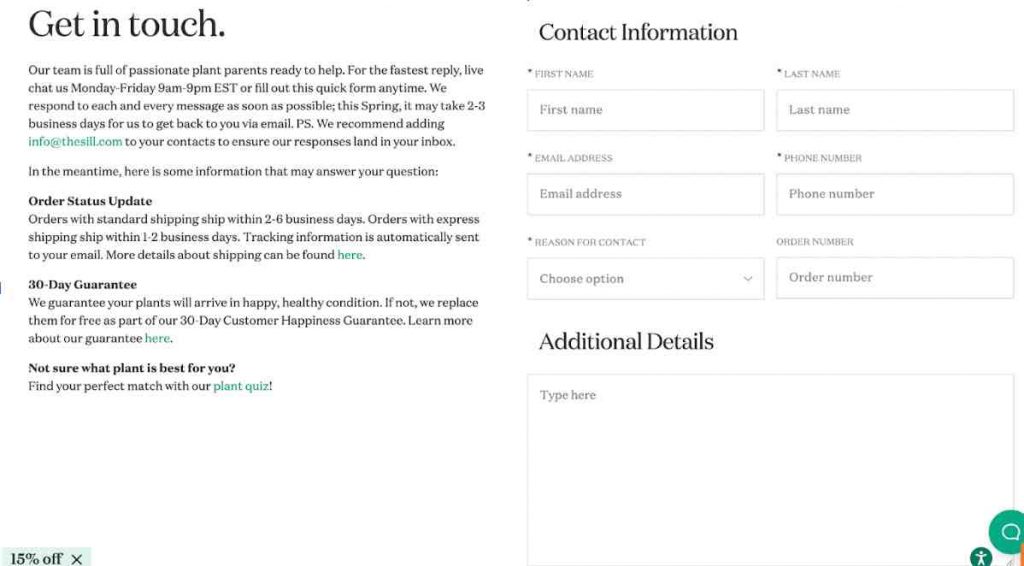Following this SEO Website Checklist helped us quickly reach 100,000 visitors per month on an affiliate website with 30% informational content and 70% commercial content.
It is important that you take care of your on-page SEO to rank higher in Google and other search engines. For this reason, we will discuss a list of official search results that you need to keep in mind if you want to ensure that your website ranks as high as possible on Google Search results.
Here’s a checklist of the most important On Page SEO factors:

1. Title tags
The title tag is the first thing people see when they land on your website. It is also one of the most important aspects of on-page SEO.
Your title tag should be:
2. Meta Descriptions

A meta description is a short text that appears under your title tag in search results. Although it doesn’t directly affect your ranking, it is still an important element of on-page SEO.
Your meta description should be:
3. H1 Tags

The H1 tag is the second most important on-page SEO tag (after the title tag). It is a large, powerful text that appears at the top of your website. Google gives more weight to keywords that appear in H1 tags, so it’s important to include your target keywords here.
4. Keyword Density

Keyword frequency is the number of times a keyword appears on a page, divided by the total number of keywords on the page. Although there is no absolute definition, a good rule of thumb is to aim for 1-2%. This means that if you have a 1000 word article, you should use your keywords 1-2 times.
5. Image Alt Text
Alt text is a short text that appears when you hover over an image. It is also an important factor for on-page SEO.
6. Internal Links
Internal links are links that point from one page on your website to another page on your website. They are important for two reasons:
When linking to other pages on your website, make sure:
7. External Links
External links are links that point from your website to another website. They are important for two reasons:
When linking to other websites, make sure:
8. Page Load Speed
Page load speed is the amount of time a page on your website takes to load. It is important for both visitors and search engines. If your pages take too long to load, visitors will get frustrated and leave. Search engines also penalize websites that load quickly.
There are a few things you can do to improve your page load speed, including:
9. Mobile-Optimization — Means Mobile Friendly
Mobile friendliness is an important factor for both visitors and search engines. In fact, Google has announced that they will prioritize mobile-friendly websites in their search results. This means that if your website is not optimized for mobile devices, it will be penalized in search results.
There are a few things you can do to make your website more mobile-friendly, including:
10. Social Media
Social media is an important factor for on-page SEO. Not only do social signals help search engines understand what your website is about, but they help drive traffic to your website. The more social signals you have, the better.
There are a few things you can do to improve your social media presence, including:
On-page SEO is an important part of any SEO strategy. By optimizing your web pages for targeted keywords, you can improve your website visibility and organic traffic. Follow the tips in this article to start optimizing your site’s SEO today.
Additional SEO Checklists
Never look at SEO as just on-page SEO, but a comprehensive strategy that includes:
SEO Checklist for On-Page Optimization
Checklist for Technical SEO
SEO Checklist for Off-Page Optimization
SEO Checklist for Local SEO
SEO Checklist for Ecommerce Websites
SEO Checklist for Small Business Websites
SEO Checklist for WordPress Websites
SEO Checklist for Wix Websites
Conclusion
By following the SEO tips above, you can help increase your website’s search engine ranking and visibility, which will lead to more traffic and customers. If you need help with your SEO efforts, consider hiring a professional SEO company or consultant.
Image Credit: Pixabay; Pexels; Thanks!
Lucas Vitale
Lucas is the Co-Founder & CEO at SEO Assistance. With ten years of experience in SEO, he has used his skills to help grow thousands of businesses around the world.
There are about 12 different types of SEO that help websites to rank better on search engine results pages.
How do I do a SEO checklist?
SEO Search List: How to Increase Your Results
- Make a clean site plan. …
- Crack great content. …
- Use appropriate headings. …
- Add alt tags. …
- Optimized for mobile. …
- Enable faster loading times. …
- Install Google Search Console and Analytics. …
- Make sure your website and URL are secure.
What is an on-page SEO checklist? List of on-page SEO factors. On-page SEO is the process of improving the actual content on your site. It includes improvements made to visible content and content in the source code. Let’s see how to do it.
What is technical SEO checklist?
Technical SEO is a part of any SEO strategy, that is why the site needs to meet all the search engine recommendations. The technical assessment list includes several items to analyze and evaluate the technical parameters of the website’s content and structure.
What is technical SEO and on-page SEO?
As Neil Patel explains, technical SEO refers to any SEO work that is done apart from the content itself. Currently, On-Page SEO refers to all the things you can do on your website/content, while off-page SEO actually refers to everything beyond it.
What is meant by technical SEO?
Technical SEO refers to web development and web hosting that help spiders to crawl and crawl your site more efficiently (to help increase organic rankings).
What are some examples of technical SEO?
Another example of technical SEO would be building an XML sitemap for your website. The first big step in establishing a technical SEO strategy is to set up your website correctly so that every page works as it should. Google (and other search engines) crawl this file to better understand your site.
Why on page SEO is important?
On-page SEO helps search engines analyze your website and related content so that it can determine if a searcher’s query is relevant to your site. Google is constantly updating their algorithm so that it can understand the intent of the searcher and deliver search results that match the user’s needs.
Why is on page and off page SEO important? On-page SEO focuses on optimizing the parts of your website that are within your control, while lateral SEO focuses on increasing your domain authority by creating content and getting backlinks from other websites.
What is on page in SEO?
On-page SEO (also known as on-site SEO) refers to the practice of optimizing web pages to improve the website’s search engine ranking and get organic traffic. In addition to posting relevant, high-quality content, on-page SEO includes optimizing headlines, HTML tags (title, meta, and header), and images.
What is on-page SEO with example?
On-page optimization (AKA on-page SEO) refers to all the steps that can be taken directly in the website to improve its position in the search rankings. Examples of this include content optimization steps or optimizing meta description and title tags.
What is on-page & off-page SEO?
On-page SEO refers to SEO factors and strategies focused on improving the aspects of your website that are under your control. Off-page SEO refers to SEO factors and strategies focused on improving your site or brand on the web.
What is on-page SEO techniques?
On-page SEO (or on-site SEO) is the process of optimizing web pages for higher positions in search engines for specific keywords to increase organic traffic. It involves aligning page-level elements such as title tags, headlines, and content as well as search intent with a specific set of keywords.
What is the single most important on page SEO factor?
The Single Most Important On-Page SEO Factor For Overall Ranking: Local Authorities. Domain Authority, or DA, is a score from 1 – 100.
What is the most important on/off page SEO component? Building backlinks is at the heart of off page SEO. Search engines use backlinks as indicators of link-to-content quality, so a site with high-quality backlinks will usually rank better than an average site with fewer backlinks.
Which is the most important on page SEO factors?
Meta tags are one of the most important SEO elements of a particular page – especially the title of the page. Each page has a title tag that appears in search results as a headline. A meta description is a brief description of a page that appears under the title on search results.
Which are the 3 most important on page SEO factors and why?
To conclude, the most important on-page SEO factors include well-written articles, good titles and descriptions, formatting with good use of headings and keywords, using images and descriptions, and Good URLs. which contain important keywords and are not too long.
What is the first thing to do before doing SEO?
Where can I find keywords? Keyword research should be the first step on your SEO journey. It’s especially important in two common areas: Know your niche – when starting a new website, basic research can provide a great overview of what sub-topics are interesting to people in your niche or your industry.
When should I start doing SEO? Regardless of whether you are launching a new website or redesigning an existing website, the short answer to the question “When should I start SEO for my new website?†is the same–before it is launched. .

